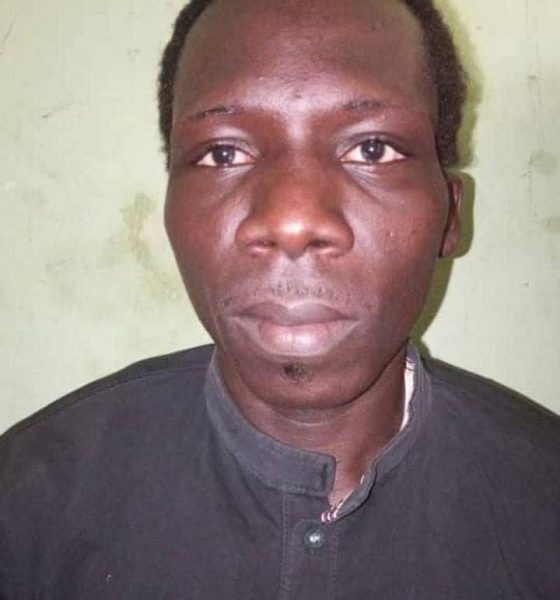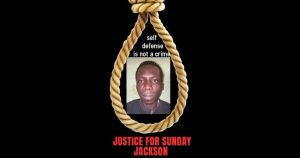

News
Public Outcry as Supreme Court Upholds Death Sentence for Adamawa Farmer
Public Outcry as Supreme Court Upholds Death Sentence for Adamawa Farmer
The Supreme Court’s decision to uphold the death sentence of Sunday Jackson, a farmer from Adamawa State, has sparked widespread outrage.
The ruling has sparked controversy across social media and fueled rumors of protests in Adamawa, with Christian groups, civil society organizations, and concerned citizens calling for justice. Many questioning the fairness of the Nigerian legal system.

Social media has erupted with the hashtags #JusticeForSundayJackson and #SelfDefenseIsNotACrime, as Nigerians express their anger over a judgment that many see as biased and unjust.
Jackson was convicted of murder for killing a Fulani herdsman in self-defense after the herdsman allegedly attacked him with a machete on his farmland in 2021.

Despite appeals, the Supreme Court ruled on March 7, 2025, that Jackson should have fled instead of retaliating after disarming his attacker. This verdict has ignited protests, with Christian groups, civil society organizations, and citizens calling for justice.
A strong statement from social media rejecting the ruling. “We, the Christians in Adamawa State, will not stand idly by in the face of injustice. Sunday Jackson defended himself from an attack, and now he faces the death penalty while those who terrorize our communities walk free. This is unacceptable,” the statement read.
Legal experts and human rights activists have also weighed in, highlighting the double standard in the justice system. Prominent human rights lawyer Delvin Ogebe stated, “The justice system has failed a man who acted purely to save his own life. This decision sends a dangerous message that victims of violent attacks have no right to defend themselves.”
The controversy surrounding Jackson’s case underscores broader concerns about the Nigerian justice system’s handling of self-defense cases. In a country where communities are frequently ravaged by violence, many argue that the courts should provide more protection for citizens who act to defend their lives and property.
Legal analysts note that in most countries, self-defense laws permit individuals to use reasonable force to protect themselves from life-threatening attacks. However, the interpretation of these laws in Nigeria remains inconsistent, often favoring perpetrators over victims.
With the Supreme Court’s verdict final, the only hope for Jackson lies in the hands of Governor Ahmadu Fintiri of Adamawa State, who has the power to grant him clemency. Calls for the governor to intervene have grown louder, with various advocacy groups demanding that he exercise his constitutional power to prevent an innocent man from being executed.
“This is not just about Sunday Jackson; this is about every Nigerian who has ever been abandoned by the system. If we allow this injustice to stand, what message are we sending? That Nigerians should not fight back when attacked? That the poor should accept their fate and die without defending themselves?” a statement from a protest group read.












